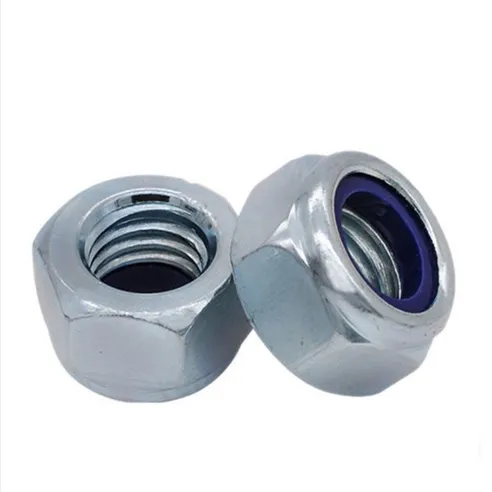stud bolt b7m factories
Nov . 11, 2024 13:13 Back to list
stud bolt b7m factories
The Rise of Stud Bolt B7M Factories Meeting the Demands of Industry
The manufacturing sector has witnessed significant innovations and adaptations, particularly in how industrial fasteners are produced and utilized. One of the most critical elements in this domain is the stud bolt, with the B7M specification gaining particular prominence. Stud bolts are integral to construction and repair projects across various industries, particularly in oil and gas, construction, and chemical processing. This article delves into the significance of B7M stud bolt factories, exploring their production processes, applications, and the growing demand for these components in modern industrial operations.
Understanding B7M Stud Bolts
Before we dive into the factories themselves, it's crucial to understand what B7M stud bolts are. The B7M specification is defined by the American Society for Testing and Materials (ASTM) and refers to a type of heavy-duty steel stud bolt typically used in high-pressure and high-temperature environments. These bolts are made from a chromium-molybdenum alloy steel, offering excellent tensile strength and resistance to sulfide stress cracking. The unique characteristics of B7M stud bolts make them particularly well-suited for applications in challenging environments, including those found in refineries and petrochemical plants.
Production Process of Stud Bolt B7M Factories
The production of B7M stud bolts encompasses various stages, from material selection and forging to machining and finishing. Factories specializing in B7M stud bolts invest in advanced technology and skilled labor to ensure high-quality output.
1. Material Selection The journey begins with the selection of the correct material. Only high-grade chromium-molybdenum alloy is utilized, as it provides the necessary properties for resistance to corrosion and stability under high thermal stress.
2. Forging The selected materials are then forged into the basic shape of the stud bolts. This process involves applying considerable pressure and heat, shaping the alloy into the desired dimensions with a uniform grain structure, enhancing strength.
3. Machining After forging, the bolts undergo precise machining processes to achieve exact dimensions and thread specifications. Computer numerical control (CNC) machines are commonly employed for their ability to produce intricate designs with high precision.
stud bolt b7m factories

4. Heat Treatment To further enhance the mechanical properties, forged and machined bolts undergo heat treatment. This process not only increases strength but also improves fatigue resistance, which is crucial for components subjected to high-stress conditions.
5. Surface Finishing Finally, surface treatments are applied to bolster resistance to corrosion and wear. Techniques such as galvanization or plating may be employed to create a protective layer that enhances longevity.
6. Quality Control Throughout the manufacturing process, strict quality control measures are enacted. This ensures that each stud bolt meets or exceeds industry standards, guaranteeing reliability and safety during use.
The Growing Demand for B7M Stud Bolts
The demand for B7M stud bolts has surged in recent years, driven by the expansion of industries that rely heavily on robust fastening components. The booming oil and gas sector, alongside increasing infrastructure projects, has propelled the need for reliable stud bolts that can withstand extreme conditions.
Moreover, as industries lean towards sustainable practices and innovations, B7M stud bolts play a pivotal role in manufacturing more efficient systems. They contribute to the safe operation of various equipment, reducing the likelihood of failures that can lead to costly downtimes or hazardous situations.
Conclusion
The evolution of stud bolt B7M factories underscores the importance of quality manufacturing in the modern industrial landscape. Through advanced production techniques and stringent quality control, these factories are positioned to meet the rising demands of industries seeking reliable fastening solutions. As technology continues to advance and industries evolve, the role of B7M stud bolts will undoubtedly remain vital, ensuring safety and efficiency in some of the most demanding applications around the globe. The future of manufacturing in this arena looks promising, with ongoing innovations shaping the landscape of industrial fasteners for years to come.
Latest news
-
Premium Phosphated Drywall Screws Supplier & Manufacturer Solutions
NewsJul.26,2025
-
Top Metric Wood Screw Companies – Reliable Manufacturer & Supplier
NewsJul.25,2025
-
Reliable Axle Nuts Supplier - Quality Manufacturing & Export Services
NewsJul.24,2025
-
Top Wire Bolts Suppliers & Exporters - Quality Fasteners Factory
NewsJul.23,2025
-
Reliable Wire Bolts Company & Supplier for Construction Solutions
NewsJul.22,2025
-
Premium Spike Wheel Nuts Supplier | Durable Quality
NewsJul.21,2025
